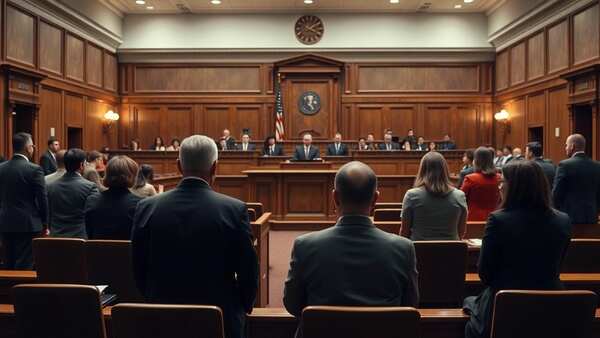
AI- generated image
TOKYO: A trial challenging Japan’s lengthy and gruelling detention of criminal suspects opened in Tokyo Wednesday, with plaintiffs decrying “subhuman” treatment they say ignores the presumption of innocence.Campaigners argue that lengthy pre-trial detention is meted out too easily in Japan, especially if suspects remain silent or refuse to confess.The lawsuit is challenging the constitutionality of the system of “hostage justice” in which confessions become a de-facto condition for their release.The term was globally popularised by ex-Nissan chief Carlos Ghosn’s 2018 arrest and months-long detention, with international rights groups having also repeatedly criticised it in the past.The new lawsuit challenges Japanese judges’ ability to “rubber-stamp” detentions, and to reject bail without demonstrating “probable cause” that evidence will be destroyed, according to lead lawyer Takashi Takano.Detained 24/7, those who maintain their innocence are often “deprived of their freedom, assets and lives ahead” even before trial starts or guilty verdicts are issued, Takano told a gathering after the first hearing Wednesday.Pre-indictment detention can last up to 23 days, extendable by multiple rearrests.Only after indictment does bail become possible, but the option is often dismissed if the accused denies the charges, campaigners say.One of the plaintiffs is Tomoya Asanuma, who last year was held in police custody for nearly four months over charges he was ultimately acquitted of.“It was like I was in a zoo cage, being fed food through a small window”, Asanuma said after the hearing, recalling life “with no privacy”. “They treated me like I was subhuman.”There are “many of those who succumbed (to detention) and falsely confessed in favour of immediate release, with their names forever soiled as former criminals,” Takano said.This, critics say, partly helps explain why Japan has long maintained astonishingly high conviction rates of more than 99 percent.Proponents, meanwhile, attribute the nearly perfect conviction rates to “precision justice”, where prosecutors only pursue airtight cases they are confident about winning. The justice ministry declined to comment on Takano’s lawsuit when contacted by AFP ahead of the opening of the trial.It however said the confinement of suspects and defendants, as well as the denial of bail, were ordered “based on the law and evidence, and in a fair manner”.



